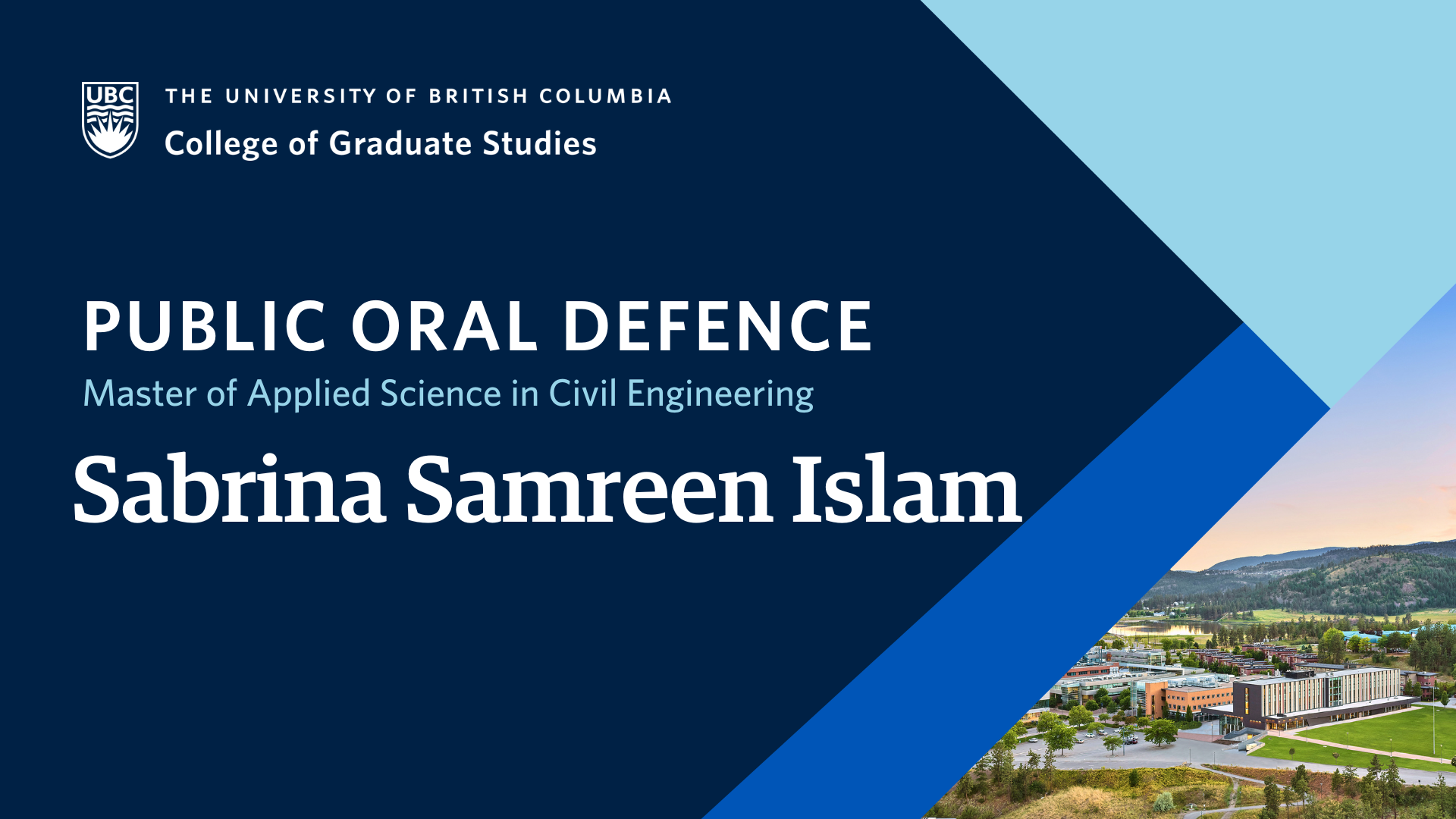
- This event has passed.
Thesis Defence: Assessing the suitability of winery waste bentonite (WB) and winery wastewater (WW) from BC wineries as a soil amendment using plant assays, germination indices, and spectroscopy
October 20, 2023 at 1:30 pm - 4:30 pm

Sabrina Samreen Islam, supervised by Dr. Sumi Siddiqua, will defend their thesis titled “Assessing the suitability of winery waste bentonite (WB) and winery wastewater (WW) from BC wineries as a soil amendment using plant assays, germination indices, and spectroscopy” in partial fulfillment of the requirements for the degree of Master of Applied Science in Civil Engineering.
An abstract for Sabrina Samreen Islam’s thesis is included below.
Defences are open to all members of the campus community as well as the general public. Please email sumi.siddiqua@ubc.ca to receive the Zoom link for this defence.
ABSTRACT
The seasonal generation, high volume, and variable characteristics (high acidity, high salinity, high organic loads) of winery wastes require timely, economical, and sustainable management to promote a circular economy and nutrient cycling in the wine industry. Geoenvironmental engineers have utilized the wastes’ macro- and micro-elemental composition and organic enrichment from wine clarification processes for soil nutritional enhancement and plant growth. Winery bentonite (WB) and winery wastewater (WW) obtained from the local wineries of the Okanagan Valley of British Columbia, Canada, were used in different dosages as organic amendments for a commercially available potting mix. Three different plant species- lettuce (L. sativa), wheat (T. aestivum), and tomato (S. lycopersicum) were studied. Germination indices (Germination Index (GI), Mean time to Germinate (MTG), etc), as well as plant growth parameters (height, fresh biomass, etc.), were evaluated. In addition, Inductively Couple Plasma-Mass Spectroscopy (ICP-MS) test was conducted to analyze the elemental composition of amended soils and plant tissues post-harvest for phytotoxic elements. The germination study shed light on phytotoxicity-induced effects at play, i.e., higher MTG values were seen for WW dosages. Plant growth parameters relayed the positive benefits of an amendment, i.e., increased plant biomass and heights, possibly due to the organic matter (OM) enrichment of the winery wastes. The FTIR-spectra revealed the presence (e.g., polysaccharides (1100-1080 cm-1)) and absence (2850-2920 cm-1 for C-H vibration of aliphatic methylenes) of some aliphatic peaks. Partial mineralization of the organic matter in winery wastes was evident in the waste or amended soils (e.g., 875 cm-1 for carbonates). Finally, an evaluation and quantification of the trace elements in amended soils relayed concentrations well within allowable limits for all heavy metals, except copper (Cu). For plant tissues, microelements (Mg, Na, P, K, Fe) and heavy metals (Cr, Zn, and especially, Cu) were found in excess compared to the values obtained by studies growing leafy vegetables under natural conditions. Thus, WB and WW would require pretreatments (like filtration of WW, composting of WB, etc.) to convert it to a completely mineralized stable organic product and to reduce its potential toxicity.